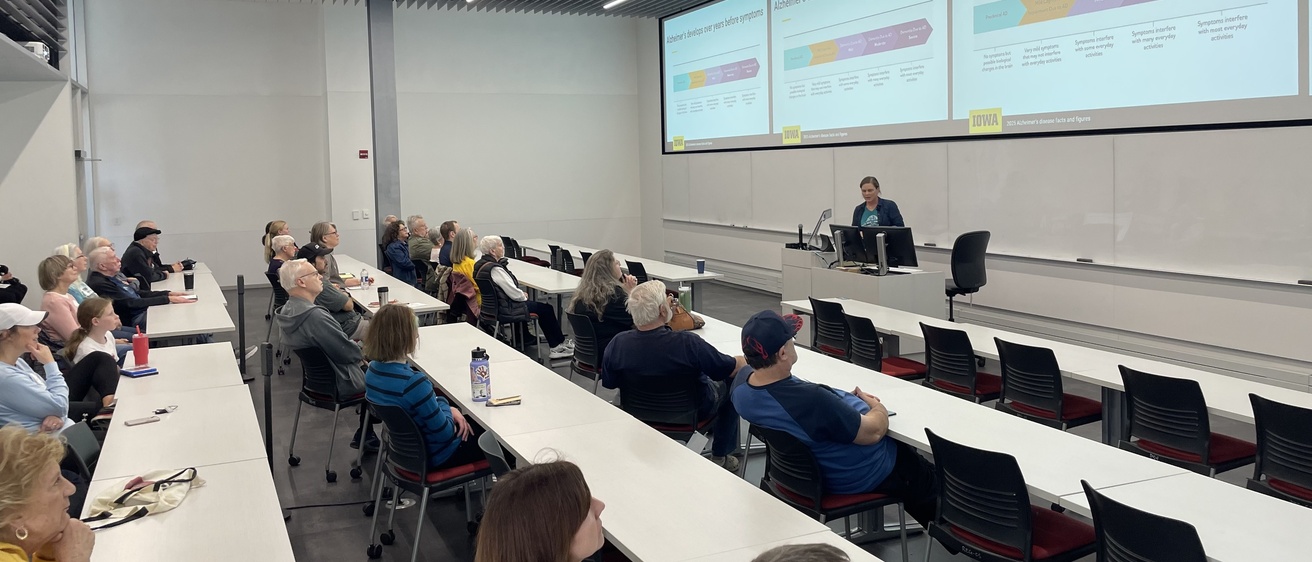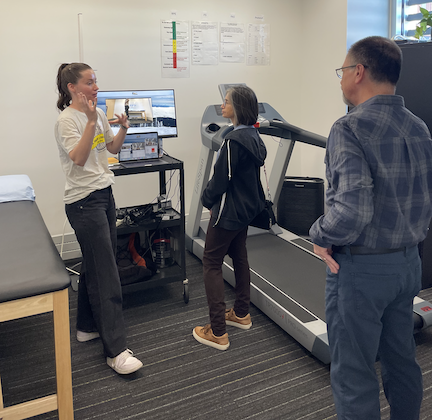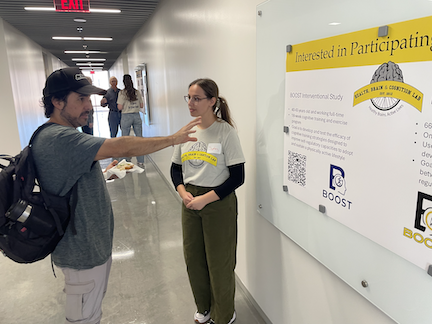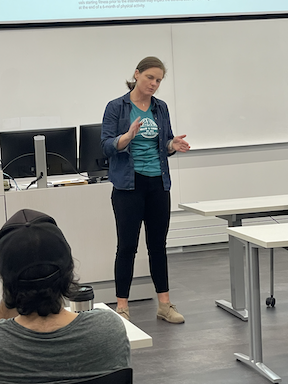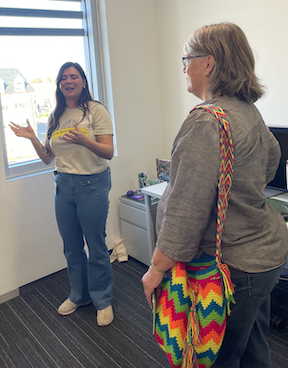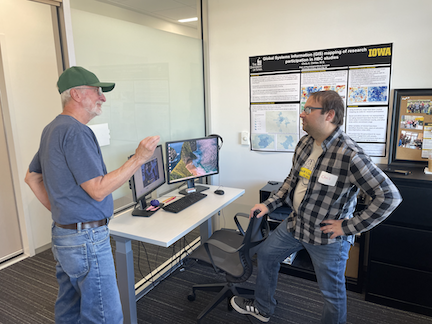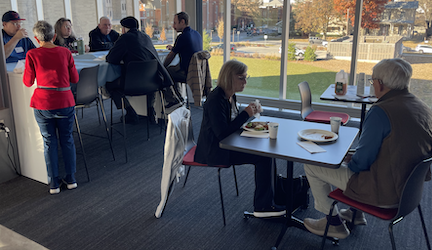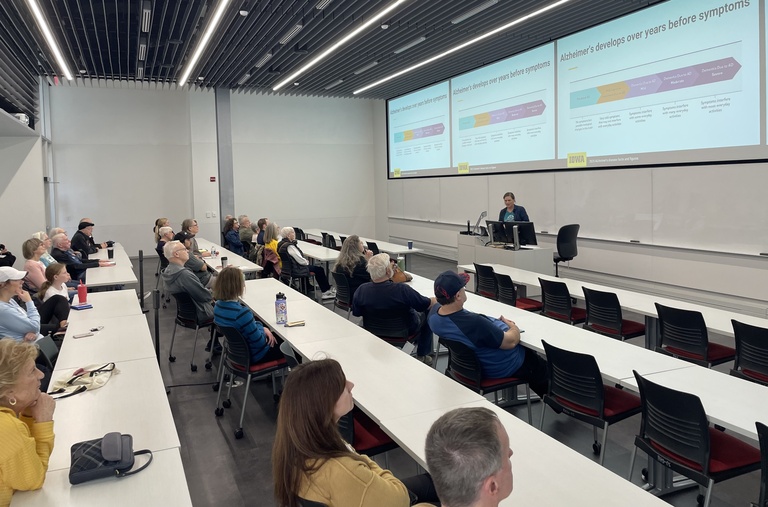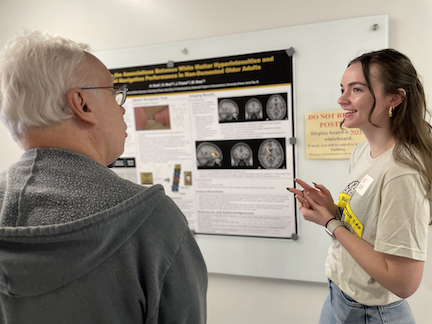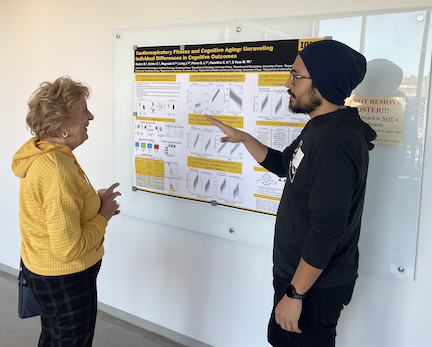Feedback was immediate and positive from the 60 current and past research study participants and others curious about our research who turned out for the Health, Brain & Cognition Lab's second annual open house on Saturday afternoon, Nov. 15.
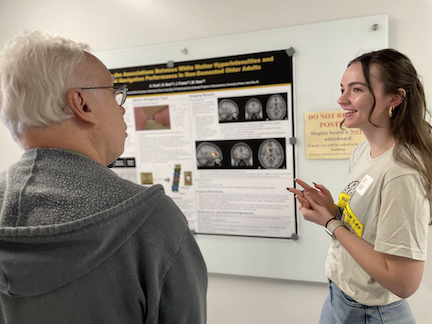
"I liked Michelle Voss' talk on current findings and the poster sessions of Ms. (Ava) Hunt and Bryan Madero. I upped my aerobic activity intensity a bit after learning that I had been coasting! Great cookies!" wrote one attendee on a feedback form this week. Another commented that she "loved visiting with the student who showed her videos of an exercise routine recommended for study participants up to age 65." Other respondents said they enjoyed the "youth and vigor of the student guides," the poster chats, although the "topics were complex" and the "technical details were a little hard to understand."
Eighty-two percent of the open house visitors who returned online surveys said they attended to learn more about brain research and maintaining cognitive health. Other top motivators for attendees were the opportunity to hear about the impact of their participation in research, learn about other research opportunities, and tour the lab.
The event kicked off with a welcome and overview of the lab's research and recent findings from Lab Director Dr. Michelle Voss. She highlighted findings from recent studies such as EXTEND and BOOST on the importance of blood flow and vigorous physical activity to brain health, sparking a lively Q&A period. Attendees adjourned for lab tours and informal, small- group chats with lab team members displaying posters to illustrate their research interests.
PhD student Bryan Madero discussed lab research showing an association between physical activity intensity level and cognitive performance in EXTEND, our controlled exercise intervention study. That study found a correlation between a 6-month period of physical activity and improved cognition.
Research Associate Sydney Andersen used a poster to explain the process for participating in our BOOST Intervention and Observation studies, including the application process, time commitment, compensation and value for participants and science. Many attendees scanned the QR codes on her poster to take the qualifying questionnaire to apply to be part of a study.
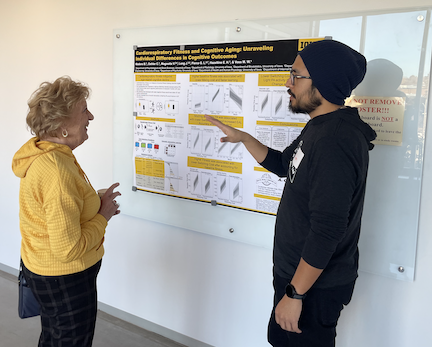
Lab Manager Chris Oehler displayed a map utilizing Global Information System (GIS) software to create graphic, color-coded displays of our study participants' zip codes to reveal geographical areas that that are well-represented in our research and those that may be under-represented.
PhD student Jess Frame described the different brain network maps known as atlases that are used to study brain-behavior relationships in older adult populations. Many studies have long used younger-adult derived atlases to analyze data from older adult populations despite inherent differences between the groups. She explained how an age-appropriate atlas may give more accurate insights about how we maintain brain health as we age.
Undergraduate Ava Hunt used her “Honors in the Major” senior thesis project poster to show associations between white matter lesions in the brain and spatial navigation performance in non-demented older adults.
Research Associate and BOOST Study Exercise Specialist Olivia Hinklin based her chat around videos she created to show the importance of cardiorespiratory fitness to cognitive health and options for staying active indoors.
The open house is one of many ways the HBC Lab works to build community connections, show appreciation to participants for helping with our research and share our findings with the public. Other outreach includes a semi-annual newsletter, lab tours, book club classes, presentations to civic clubs and other groups, and resources on our website for people interested in maintaining cognitive health.
For additional information, contact emery-styron@uiowa.edu.
